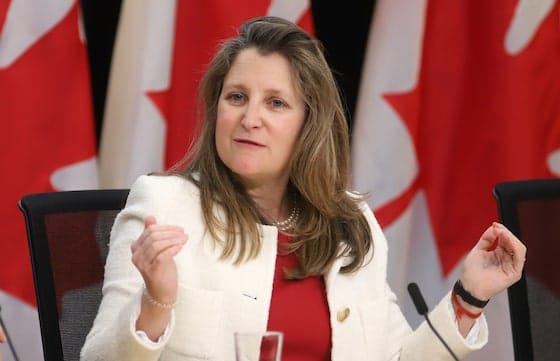Upcoming Budget Raises Taxation Concerns
In a recent news conference, Deputy Prime Minister and Minister of Finance Chrystia Freeland outlined the government’s commitment to youth mental health, but looming in the background is the anticipation of Tuesday’s budget announcement. Despite recognizing the pitfalls of tax hikes, Freeland is expected to propose increased levies on Canada’s most profitable companies and wealthiest individuals.
The need to boost government revenue stems from Freeland’s dual objectives: adhering to fiscal anchors set last year while funding new programs initiated by Prime Minister Justin Trudeau. CIBC’s chief economist, Avery Shenfeld, noted that the Liberal government has a history of turning to tax increases as a solution, citing recent hikes on banks and insurers.
Speculation in Ottawa and Bay Street centers on two tax scenarios: a surcharge on sectors deemed excessively profitable and a wealth tax. Bank of Montreal’s senior economist, Robert Kavcic, remarked that such measures align with the government’s approach, pointing to last year’s corporate tax increases as a precedent.
However, economists warn against targeting specific industries, arguing it disrupts fair capital distribution. Shenfeld emphasized that selective taxation could deter CEOs from investing in their businesses, thereby exacerbating Canada’s productivity decline. Moreover, the potential for businesses to pass tax costs onto consumers could inadvertently stoke inflation—a challenge Freeland has been battling.
The prospect of raising taxes on the wealthy also presents dilemmas. With one of the OECD’s highest personal income tax rates already in place, further increases risk capital flight rather than revenue generation. Historical precedents, such as France’s failed “supertax” and wealth tax experiments, serve as cautionary tales of such policies’ unintended consequences.
As Freeland prepares the budget, economists urge consideration of alternative measures like spending cuts or delaying new program rollouts. They advise that new taxes should be a measure of last resort, carefully implemented to avoid impeding productivity growth—a critical factor for Canada’s economic future.






